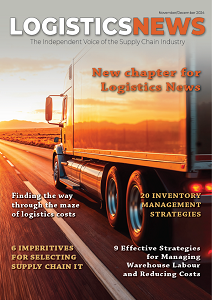Supply chains don’t just get goods from manufacturers to end users. They save lives. This as never been more evident than during the COVID-19 crisis.

The pandemic highlighted the critical need for improvements in public health supply chains around the world, including in South Africa. Recognising this, the International Association of Public Health Logisticians (IAPHL) established its South African Chapter in partnership with the Professional Body for Supply Chain Management (SAPICS).
IAPHL was founded in 2007 and supports logisticians worldwide by providing a forum for members to network, exchange ideas and develop their skills. Members come from over 152 countries, a variety of professional backgrounds and represent all levels of the supply chain. “At IAPHL, we believe knowledgeable and empowered public health supply chain operators and managers are central to improving health outcomes and achieving universal health access. Our mission is to enable people working in public health supply chains to connect, learn and succeed,” explains Walter Proper, Executive Director of IAPHL.
He says that public health logisticians have a critical but often undervalued role in providing life-saving health services. “Especially in developing countries, supply chain management is often not recognised as a profession that requires specialised training. IAPHL’s vision is a world where strong and well-run supply chains reach all people with lifesaving health products.”
Since its launch in December 2020, the IAPHL’s South African Chapter has hosted numerous free networking and professional development events geared towards connecting, empowering and upskilling professionals working in the country’s public health supply chains.
Lessons from Ethiopia were shared in an informative IAPHL webinar presented by Capital Berhanu, Inventory Management and Distribution Officer at the Ethiopian Pharmaceutical Supply Agency. The agency has been working to optimise the supply chain needed to ensure equitable, affordable access to anti-cancer medicines for all Ethiopians. Berhanu shared his learnings and insights on challenges that include high expiry and wastage, frequent stockouts, data visibility issues, product delivery delays, intermittent reports, facility complaints and inadequate communication.
Life-threatening medicine stockouts were in the spotlight in a case study presented by David Crewe-Brown, General Manager at Vitalliance, experts in pharmaceutical and humanitarian supply chains. Crewe-Brown noted that appropriate levels of medicine availability are necessary to meet patient needs, but the challenge is that the current processes require the already overburdened health care practitioners to manage the medicine storeroom, count the stock levels, calculate the replenishment orders and issue stock to the consulting rooms when required. Many of these process steps fail, resulting in stock shortages.
The solution is to automate the replenishment planning of medicines in the South African public health supply chain, he told attendees.He offered advice and guidance on designing a new, analytically based, automated replenishment planning process.
The roll-out of the COVID-19 vaccine in South Africa was the topic of an IAPHL webinar presented by Professor Norman Faull, Emeritus Professor of Operations Management at the Graduate School of Business, UCT and Founder/Chairman of the Lean Institute Africa. The Lean Institute Africa has been instrumental in observing and advising several vaccination sites since the beginning of the pilot phase of the vaccine roll-out. Faull discussed the challenges, solutions and successes that have been experienced firsthand
Annette Naude, DSV’s General Manager for Pharmaceuticals and Healthcare (Air & Sea), South Africa looked at innovations for health care supply chains for the future in a webinar that she presented for IAPHL’s South African Chapter. She shared strategies developed by cold chain supply network leader DSV to navigate the COVID-19 crisis, not only in South Africa, but also in Africa, including multi-model strategies and strategic partnerships. Creative ways had to be found to ensure that amid the turmoil of the pandemic, emergency and life-saving cold chain pharmaceuticals and other health care commodities could still get to where they were needed, when they were needed, she stated.
In addition to ensuring that everyone working in South Africa’s public health supply chains has access to the requisite resources, training and skills, one of the top priorities of the South African IAPHL Chapter is encouraging more young people and graduates to pursue careers in public health care supply chains. To this end, an IAPHL and SAPICS membership package is being offered at no cost to 50 young supply chain professionals. Applicants must be working in or wish to work in the management of public health supply chains and humanitarian logistics and must be aged 25 or younger.
For more information or to apply, email Elaine Stewart at SAPICS, elaine@sapics.org.za

.jpg)


